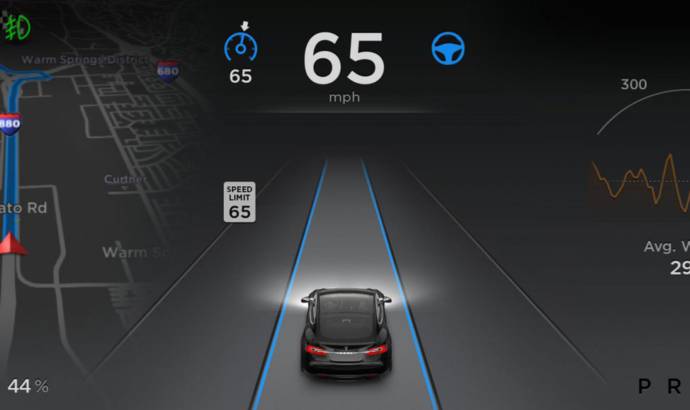As every manufacturer is gearing up for autonomous vehicle production, Tesla is ready to offer its clients the echnology ahead of its rivals, but with some limitations.
Starting with October 2014, Tesla started equipping Model S with hardware to allow for the incremental introduction of self-driving technology: a forward radar, a forward-looking camera, 12 long-range ultrasonic sensors positioned to sense 16 feet around the car in every direction at all speeds, and a high-precision digitally-controlled electric assist braking system.
Today’s Tesla Version 7.0 software update allows those tools to deliver a range of new active safety and convenience features, designed to work in conjunction with the automated driving capabilities already offered in Model S. The system is continually learning and improving upon itself.
Autopilot, as it was called, allows Model S to steer within a lane, change lanes with the simple tap of a turn signal, and manage speed by using active, traffic-aware cruise control. Digital control of motors, brakes, and steering helps avoid collisions from the front and sides, as well as preventing the car from wandering off the road. The car can also scan for a parking space, alert when one is available, and parallel park on command.
Tesla Autopilot relieves drivers of the most tedious and potentially dangerous aspects of road travel. While truly driverless cars are still a few years away, Tesla Autopilot functions like the systems that airplane pilots use when conditions are clear. The driver is still responsible for, and ultimately in control of, the car. What’s more, you always have intuitive access to the information your car is using to inform its actions.
This release also features the most significant visual refresh yet of the digital displays for every single Model S around the world. The Instrument Panel is focused on the driver and includes more functional apps to help monitor the ride.
The release of Tesla Version 7.0 software is the next step for Tesla Autopilot, developing new capabilities and delivered through over-the-air software updates.



